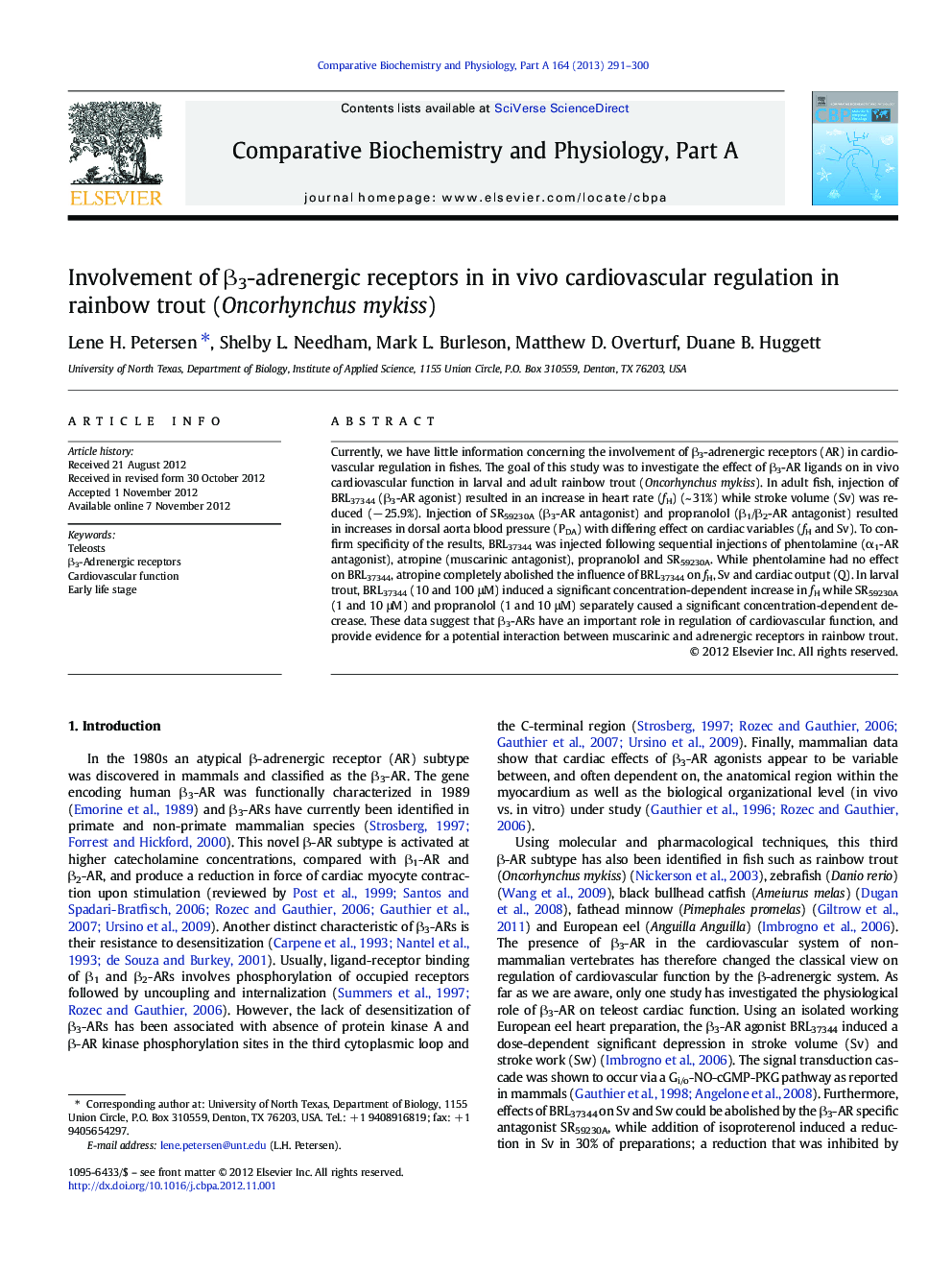| Article ID | Journal | Published Year | Pages | File Type |
|---|---|---|---|---|
| 1972322 | Comparative Biochemistry and Physiology Part A: Molecular & Integrative Physiology | 2013 | 10 Pages |
Currently, we have little information concerning the involvement of β3-adrenergic receptors (AR) in cardiovascular regulation in fishes. The goal of this study was to investigate the effect of β3-AR ligands on in vivo cardiovascular function in larval and adult rainbow trout (Oncorhynchus mykiss). In adult fish, injection of BRL37344 (β3-AR agonist) resulted in an increase in heart rate (fH) (~ 31%) while stroke volume (Sv) was reduced (− 25.9%). Injection of SR59230A (β3-AR antagonist) and propranolol (β1/β2-AR antagonist) resulted in increases in dorsal aorta blood pressure (PDA) with differing effect on cardiac variables (fH and Sv). To confirm specificity of the results, BRL37344 was injected following sequential injections of phentolamine (α1-AR antagonist), atropine (muscarinic antagonist), propranolol and SR59230A. While phentolamine had no effect on BRL37344, atropine completely abolished the influence of BRL37344 on fH, Sv and cardiac output (Q). In larval trout, BRL37344 (10 and 100 μM) induced a significant concentration-dependent increase in fH while SR59230A (1 and 10 μM) and propranolol (1 and 10 μM) separately caused a significant concentration-dependent decrease. These data suggest that β3-ARs have an important role in regulation of cardiovascular function, and provide evidence for a potential interaction between muscarinic and adrenergic receptors in rainbow trout.
